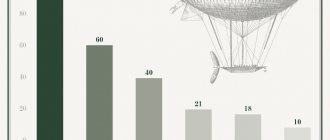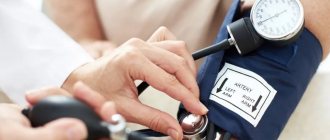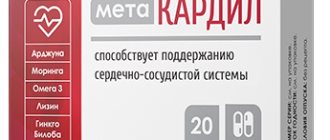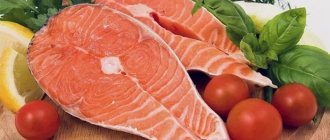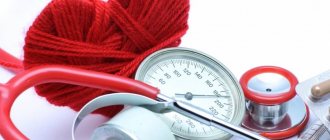More than a billion people living on our planet are somehow associated with hypertension. Ozerchans are no exception. But some of them don’t even suspect it, says Ksenia Kupriyanova, a therapist at the Ozyorsk Central District Hospital: “Hypertension is a dangerous disease, fatal. But we can and must fight it. It is important to know what your diet should be, what you should give up, and what loads are acceptable. If you follow all the recommendations, the disease will not progress and the condition will gradually improve.”
| What is useful for hypertension | What is harmful |
| Prolonged stay in the fresh air | Table salt, fatty, spicy and salty foods, flour products |
| Morning exercises to improve blood circulation | Alcohol and smoking destroy blood vessels |
| Breathing relaxation | Inactive sedentary lifestyle |
| Decoctions of medicinal herbs that normalize blood pressure | Heavy physical activity (bodybuilding, endurance running, marathon running) |
| Omega3, potassium and magnesium, raw vegetable and fruit juices | Stress, psychological stress, poor sleep |
For those whose blood pressure rises infrequently, you need to be careful! It is better to change your lifestyle to prevent the development of persistent hypertension and fight it throughout your life.
What is prohibited for hypertensive patients?
When it comes to a person’s high blood pressure, all doctors agree that first of all you need to monitor your diet. It is also important to adjust your lifestyle and correctly distribute rest and work.techDirex.ndYaNew Porsche MacanApartments near Tsaritsyno metro station. Discounts! Project declaration on the advertised site
Prohibited for hypertensive patients:
- It is necessary to give up (or minimize) fatty foods, alcoholic beverages, coffee and strong tea, table salt, cigarettes, and sweet carbonated drinks.
- You should forget about heavy physical activity (bodybuilding and other strength training). In this case, it is better to perform gymnastic exercises that are included in the list of exercise therapy.
- If you have high blood pressure, you should avoid going to baths, steam rooms and saunas. Any increase in temperature will affect the heart and blood vessels.
Nutrition
A balanced diet is the main thing that every hypertensive patient should adhere to. It is important to carefully monitor your weight, as extra pounds put a strain on the heart and blood vessels.
What not to eat if you have high blood pressure:
- Limit the amount of table salt to a minimum. Consume no more than 3-4 grams, taking into account foods with sodium.
- Strong tea and coffee are prohibited. It is better to drink healthy herbal decoctions, chicory and infusion.
- Fatty meat should be excluded for the entire course of treatment.
- Avoid rich broths in your diet.
- Pies, buns, cakes and other baked goods can aggravate the disease. They are a combination of sugar and fat.
- Fish roe can occasionally be added to the diet, but in small quantities, as it contains a lot of salt.
- Delicacies such as honey, jam, compotes, jelly are limited, but it is not necessary to give them up completely.
- Since the body does not digest legumes well, they need to be included in the diet in minimal quantities.
- Alcohol, especially strong alcohol, is prohibited! It is also worth considering quitting smoking.
It is important to know at what stage the disease is. If the pathology has just begun to manifest itself, then you should not limit yourself in everything. If the disease is already progressing, then it is your diet that you need to monitor most carefully.
Prohibited sports
Professional sports strain the heart, which can cause blood pressure to rise. Often, athletes do not even suspect that they are beginning to develop hypertension. ADVERTISING
Hypertensive patients should not engage in bodybuilding, as numerous studies have confirmed that strength training significantly increases blood pressure levels. At the same time, even young beginner athletes are at risk.
Static exercises also negatively affect a person’s blood pressure, especially if performed for a long period of time. It is better to alternate them with aerobic exercise, which has a good effect on the heart and at the same time normalizes weight.
Climate and weather
Harsh climates and unpleasant weather can harm the body. Atmospheric pressure and human blood pressure are interconnected! In hypertensive patients, it usually immediately rises as soon as the atmospheric pressure begins to fall.
Rain, temperature, air humidity - all this affects the fluctuations in the patient’s cardiovascular parameters.
A sharp change in weather negatively affects the condition of a hypertensive patient! You need to choose places to relax with a stable temperature. Anapa with its resorts is well suited for this.
The northern part of Russia is an ideal place to live for those who suffer from heart and vascular diseases. Steppes, forests, mountains will be an ideal solution, since the air humidity there is not too high. The southern part of Russia has a very favorable mountain climate. There the air is quite clean and at the same time warm, and the weather practically does not change.
Psychological stress
More than half of patients with hypertension experience various psychological and emotional problems. Frequent depression, stress and overexertion appear.
This may be due to various factors:
- problems at work;
- financial difficulties;
- psychological trauma;
- loss of a loved one, etc.
In such conditions that depress the nervous system, the pressure usually increases by several tens of units. This can lead to dangerous complications. To restore and calm the nervous system, it is enough to take a drug with a sedative effect.
To ensure that the consequences of psychological conditions are not dangerous to health, the attending physician must prescribe complex therapy. In most cases, these are antidepressants that stabilize the patient’s nervous system and psyche.
Bad habits
Alcohol consumption is a serious risk factor for hypertension and its consequences. If the patient does not limit himself in drinking alcohol, this can lead to sad complications. Drunkenness always causes a hypertensive crisis, leading to brain hypoxia and heart attack.ADVERTISING
For hypertensive patients, the norm and limit per day is 40 grams of red wine!
Some believe that nicotine may be beneficial for high blood pressure. It relieves stress and other emotional states that are dangerous in hypertension. It is a myth! According to medical research, smokers have an increased risk of complications from cardiovascular diseases. Experts also say that in many cases this leads to disability or death.
Nicotine can constrict the walls of blood vessels after it enters the blood. In addition, it increases blood cholesterol levels.
Let's start with what pressure is determined by
Let's imagine that the heart is a giant pump, and the many vessels through which it pumps blood 24 hours a day are hoses of various sizes, with many branches. These vessel hoses carry oxygen and nutrients critical for functioning to various organs and tissues.
Unlike a sprinkler with hoses, where the volume of water passing through the hoses is more or less constant, in our case it constantly changes depending on the state in which we are - lying, running, injured, healthy. Depending on this, our tissues and organs require different amounts of oxygen and nutrients.
Take a step toward food freedom, calm, healthy satiety, and sound sleep with my Optimal Sugar and Insulin program.
In order to meet the body's varying needs and change the volume of fluid passing through the vessels, these vessels must be elastic (to expand and contract as needed), strong (to withstand increased pressure) and smooth (so that substances contained in the blood do not stick to walls of blood vessels).
So, in the vast majority of cases - approximately 90%, according to one of the leading American cardiologists, the cause of high blood pressure or hypertension is unhealthy blood vessels that have either lost their elasticity, or the ability to contract and expand, or their fluid capacity has decreased due to for atherosclerotic plaques. That is, from high-quality plastic flexible pipes, the arteries turned into metal ones, rusted to varying degrees.
What is good for hypertensive patients?
To maintain normal blood pressure, a person should be in the fresh air quite often, do exercises in the morning, and eat raw vegetables and fruits. Walking and light jogging will also help.
It is useful to drink decoctions and infusions of plants: rose hips, chamomile, chokeberry, hawthorn, viburnum. Fresh greens, vegetables and fruits must be present in the diet.
The room must be constantly ventilated so that there is an influx of fresh air.
Healthy food
Products that are useful to include in your diet:
- Walnuts, spinach, garlic, cereals (buckwheat, oatmeal, wheat);
- Cod and sea bass are very useful fish;
- Any plant food (vegetables, berries, fruits);
- You are allowed to eat only lean meat: chicken, veal, turkey. You need to cook it without oil, and instead of salt it is better to add a little lemon juice and herbs (dill, parsley).
You can add vegetable oil, but it is better to give preference to olive oil.
Split meals 4-6 times a day in small portions are encouraged.
You can’t overeat before going to bed, but you can eat some vegetables, fruits, or drink a glass of kefir.
Best prevention methods
The best way to avoid serious complications that arise from hypertension is to prevent the disease itself.
Prevention should include a healthy and proper diet, giving up alcohol and smoking, controlling your emotional state and stress management. You also need to engage in moderate physical activity (swimming, running, cycling, aerobics).
Avoid excess weight, drink enough water (1.5 - 2 liters per day), do not indulge in salty, fried foods, and once a week you can have a fasting day.LOADING
Thus, to prevent the disease from developing, you must first adjust your lifestyle and diet.
Doctors advise going to bed on time and giving up bad habits. If you don’t take care of your health on time, you will have to take medications for life, undergo examinations and constantly monitor your blood pressure so that a stroke or heart attack does not occur. ADVERTISING Facebook
Causes of vascular dysfunction
Diet
In the case of blood vessels, damage and inflammation often begin with my favorite diet. It’s called inflammatory, and also traditional Western and is characterized by:
- high sugar content (this also includes all refined foods, such as flour and cereals, for people with carbohydrate metabolism disorders, even whole grain cereals and starchy vegetables)
- relatively low in nutritionally dense foods rich in minerals important for heart health, such as: vegetables, herbs, algae, fatty wild fish, offal
High toxic load
Modern people, and especially residents of megacities, simply swim in toxic substances - from pesticides and hormones that they eat with food, to plastic, detergents, furniture, cosmetics, and the air they breathe. Exceeding the volume of these substances, the limit that the liver is ready to process, and internal and external oxidative substances are ready to neutralize, leads to a high level of oxidative stress, which again entails inflammatory processes.
Stress
Stress kills, as we know, and the mechanism of this killing is very tangible. Chronic stress (and it can be both external and internal, caused by chronic diseases, infection, oxidative stress) leads to the production of hormones that carry out very specific commands in the body, namely: constrict blood vessels, increase blood clotting, direct blood to organs, which are evolutionarily important for survival in situations of stress, increase blood production, preventing the kidneys from excreting fluid, and increase blood sugar levels.
In a state of chronic stress, this physiological adaptation to stress is literally a time bomb - the blood vessels are constantly constricted, while the blood volume is high. The resulting powerful blood flows lead not only to damage to blood vessels, but also to the literal washing away of existing plaques and to the rapid formation of new blood clots in thick blood with elevated sugar levels.
Nutrient deficiency
At the cellular level, the heart simply needs a whole list of nutrients in order to do its job - magnesium, zinc, potassium, B vitamins, vitamin K2 and many others. For example, with magnesium deficiency, which is typical for the majority of the world's population, the vessels do not relax and remain constricted; with vitamin K2 deficiency, calcium, instead of being absorbed in bone tissue, remains in soft tissue, which leads to hardening of the arteries, which thereby lose flexibility.
Among other factors, which I will not talk about in detail today: poor digestion and intestinal microflora, poor sleep, infection, sedentary lifestyle, metabolic disorders such as hyperglycemia, metabolic syndrome, diabetes, decreased thyroid function.
